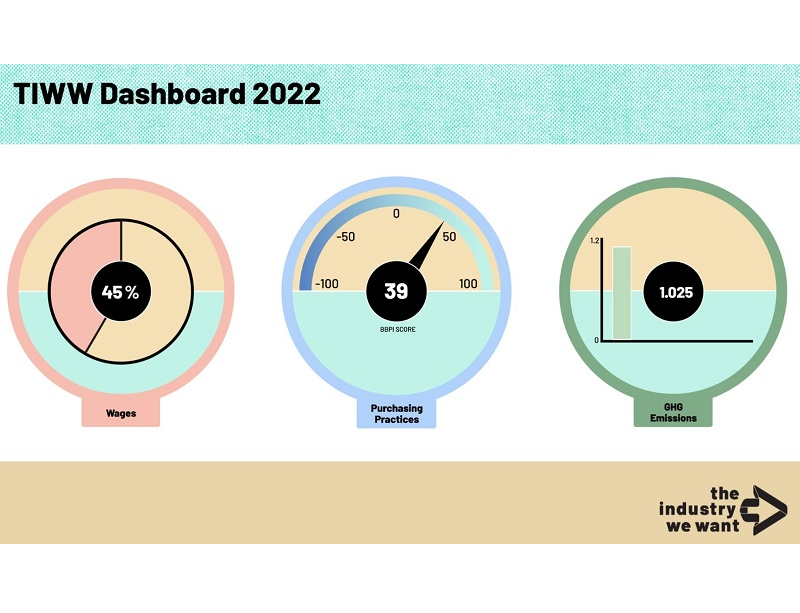
Fair Wear and ETI are the first Multi-Stakeholder Initiatives (MSIs) to publish full BBPI reports, with scores generated through supplier feedback on the MSIs member brands. The initiatives hope that revealing their BBPI reports will accelerate change in the garment and footwear industry.
The reports are connected to apparel and footwear multi-stakeholder initiative The Industry We Want (TIWW) Purchasing Practices indicator. The apparel industry tool measures the apparel and footwear industry’s progress on the wage gap, purchasing practices and greenhouse gas (GHG) emissions. Detailed scoring for each MSI against 12 key behaviours are generated through supplier feedback on the MSI member brands.
Margreet Vrieling, associate director of Fair Wear said, “As convenors of The Industry We Want, we see an interesting opportunity: MSIs and responsible business conduct platforms can compare their score against our Industry Dashboard. By sharing our reports, we learn more about the opportunities of moving towards responsible purchasing practices.”
The reports show that both ETI and Fair Wear scored over 70% for ‘fair financial practices’ (ETI: 70,6% and Fair Wear: 77,8%) and over 90% for ‘business dealings free from corruption and bribery’ (ETI: 92,9% and Fair Wear: 94,4%). ETI and Fair Wear member brands also had particularly good communication practices (ETI: 70,6% and Fair Wear 86,1%).
Peter McAllister, director of ETI says, “We are pleased to see reports of good behaviour among ETI brands when it comes to purchasing practices. As the first year of this initiative, engaged suppliers have played a vital role in delivering this feedback. ETI looks forward to growing the reach of this survey to establish a greater measure of industry-wide progress year on year. The more suppliers we hear from, the clearer a picture of industry performance these scores will provide.”
The Better Buying Partnership Index reports for ETI and Fair Wear provide detailed scoring across the Partnership Index’s 12 key behaviours. These new insights are devised by collecting aggregated supplier feedback pertaining to ETI or Fair Wear member brands. Suppliers can rate member brand customers as either True Partners, Collaborators, or Detractors on each issue.

US Tariffs are shifting - will you react or anticipate?
Don’t let policy changes catch you off guard. Stay proactive with real-time data and expert analysis.
By GlobalDataETI scores 8 points above the industry with, at 63%, a higher percentage of True Partners than the industry average of 56%. Looking in more detail at the breakdown, ETI’s strongest performance lies in:
- Absence of corruption and bribery (92,9%)
- Good communication (70,6%)
- Fair financial practices (70,6%)
- Stable business with Buyers (60%)
Fair Wear scores 28 points above industry average of 39, with 73% of brands receiving True Partner scores. Looking in more detail at the Fair Wear breakdown, Fair Wear member brands are exhibiting good behaviours across all categories. Fair Wear’s strongest performance lies in:
- Absence of corruption and bribery (94,4%)
- Good communication (86,1%)
- Stable business with Buyers (80,6%)
- Fair financial practices (77,8%)
Suppliers to both ETI and Fair Wear member brands reported that there was room for improvement and buyers could improve, amongst other things, practices regarding product and process innovation, environmental performance and efficiency in their operational processes.
Keren Pybus, CEO and co-founder Ethical Apparel Africa says: “I’m pleased to see both Fair Wear and ETI promoting disclosure and transparency on purchasing practices and hope to see more actors in the industry follow their lead. This is a key step towards improving working conditions and ensuring a positive impact on the industry and those that work in it, as it sheds light on what equal partnerships look like and how those can be enabled.”
Read the full reports at www.theindustrywewant.com



